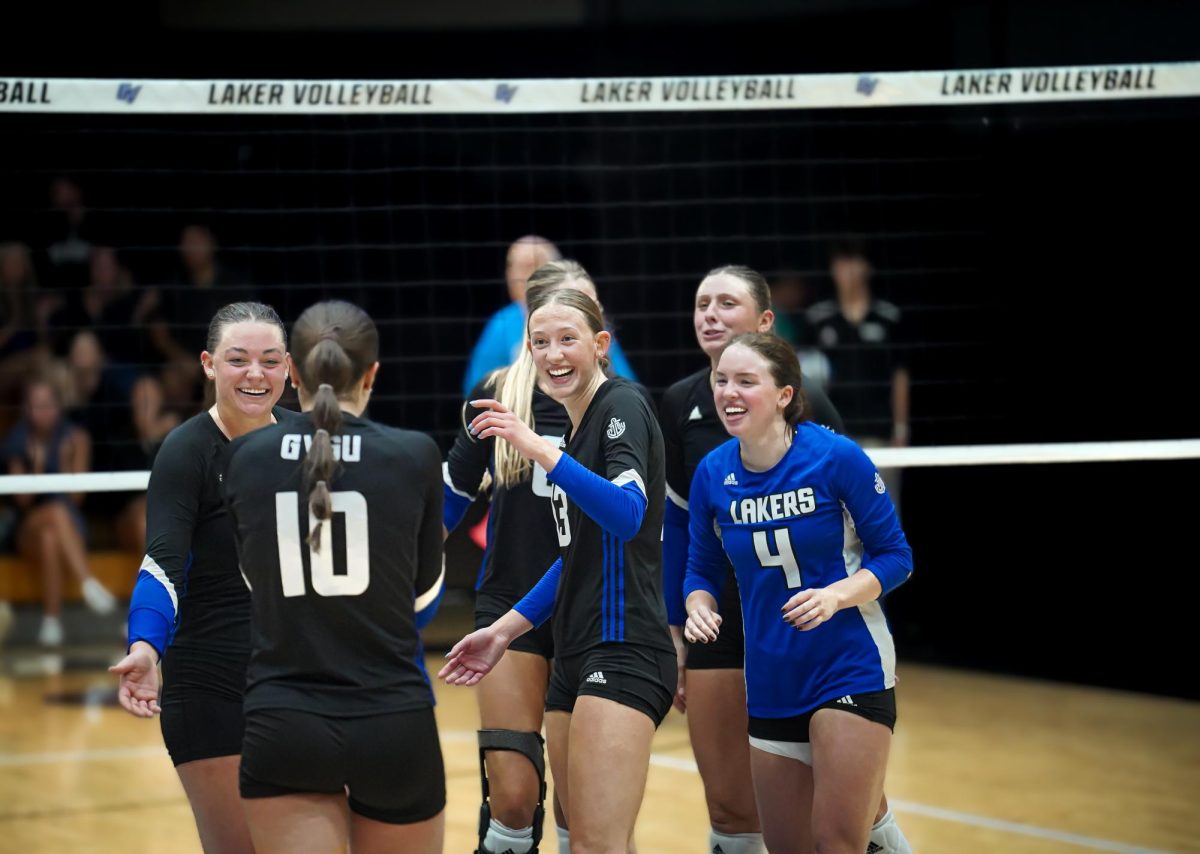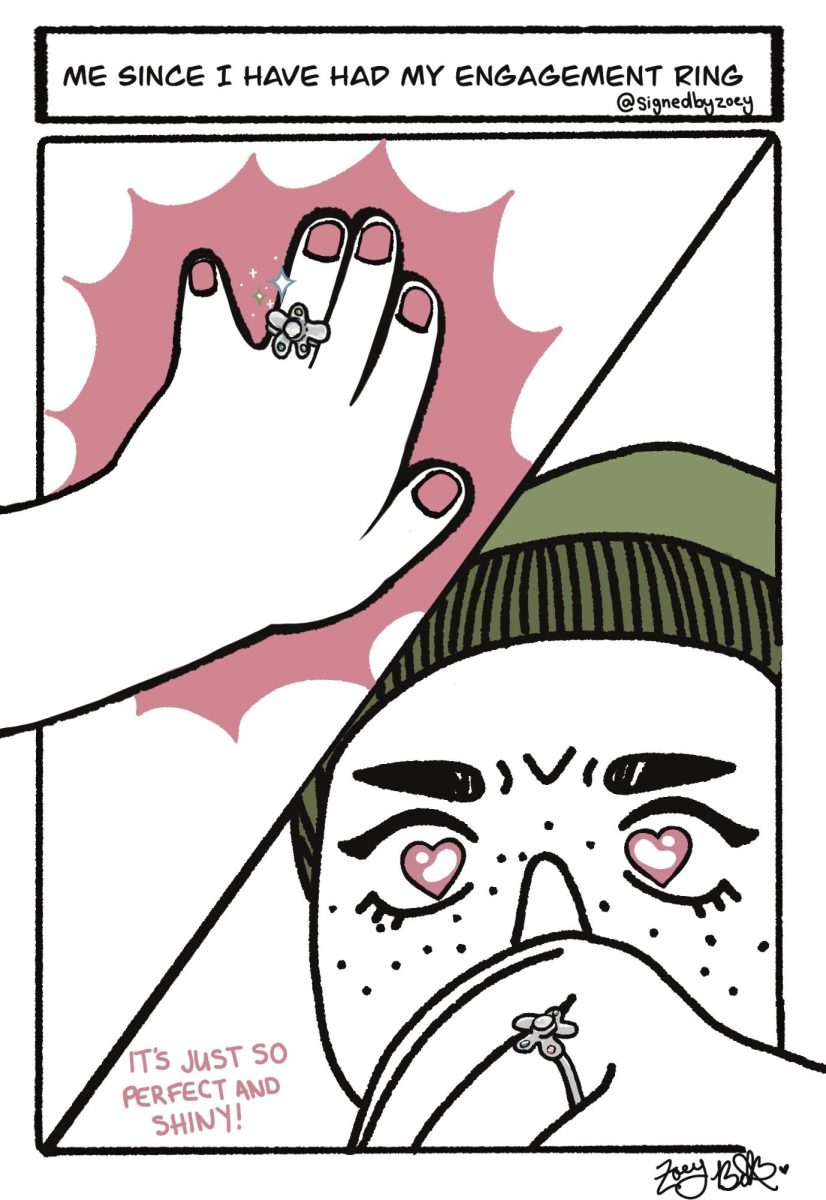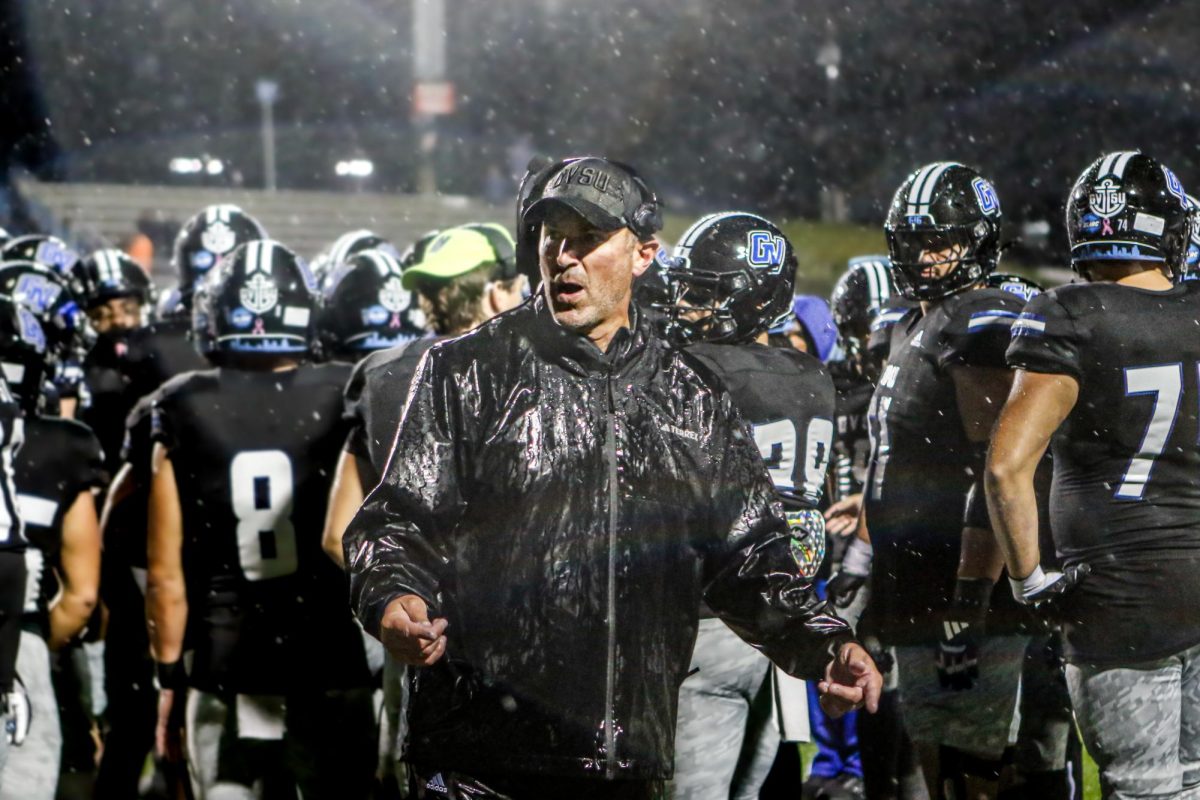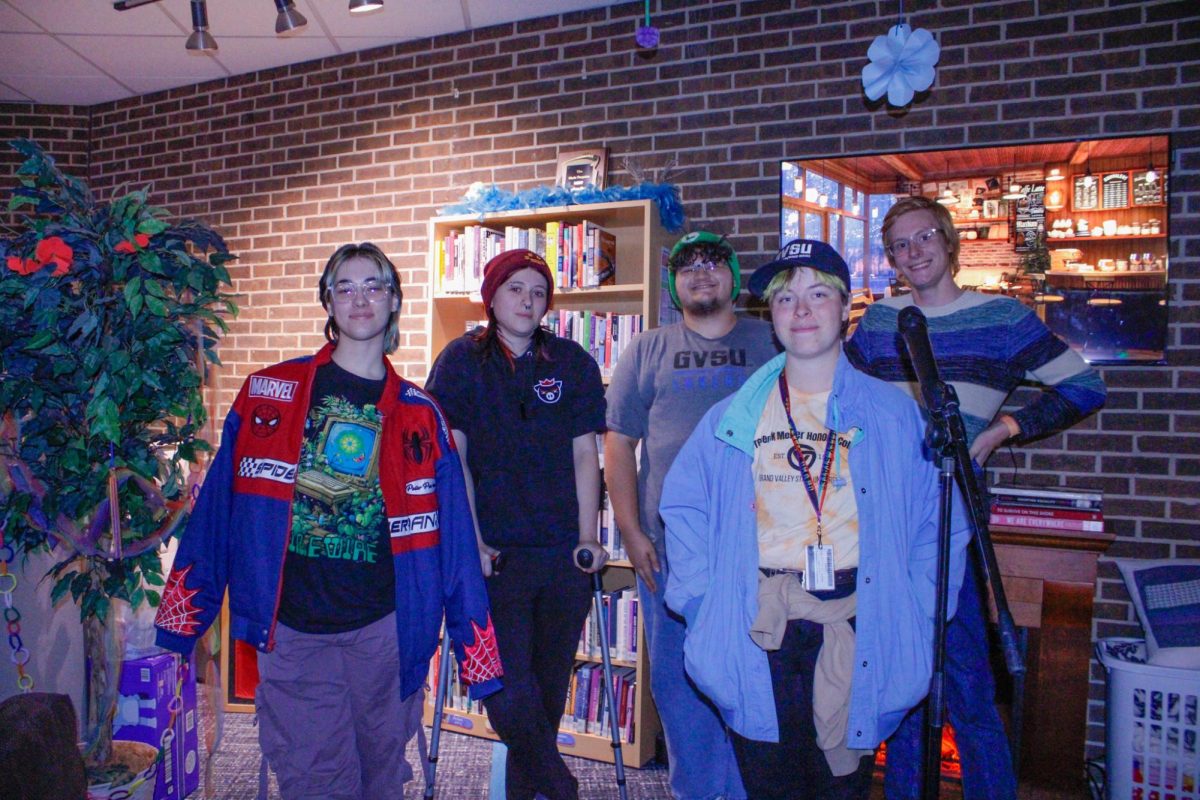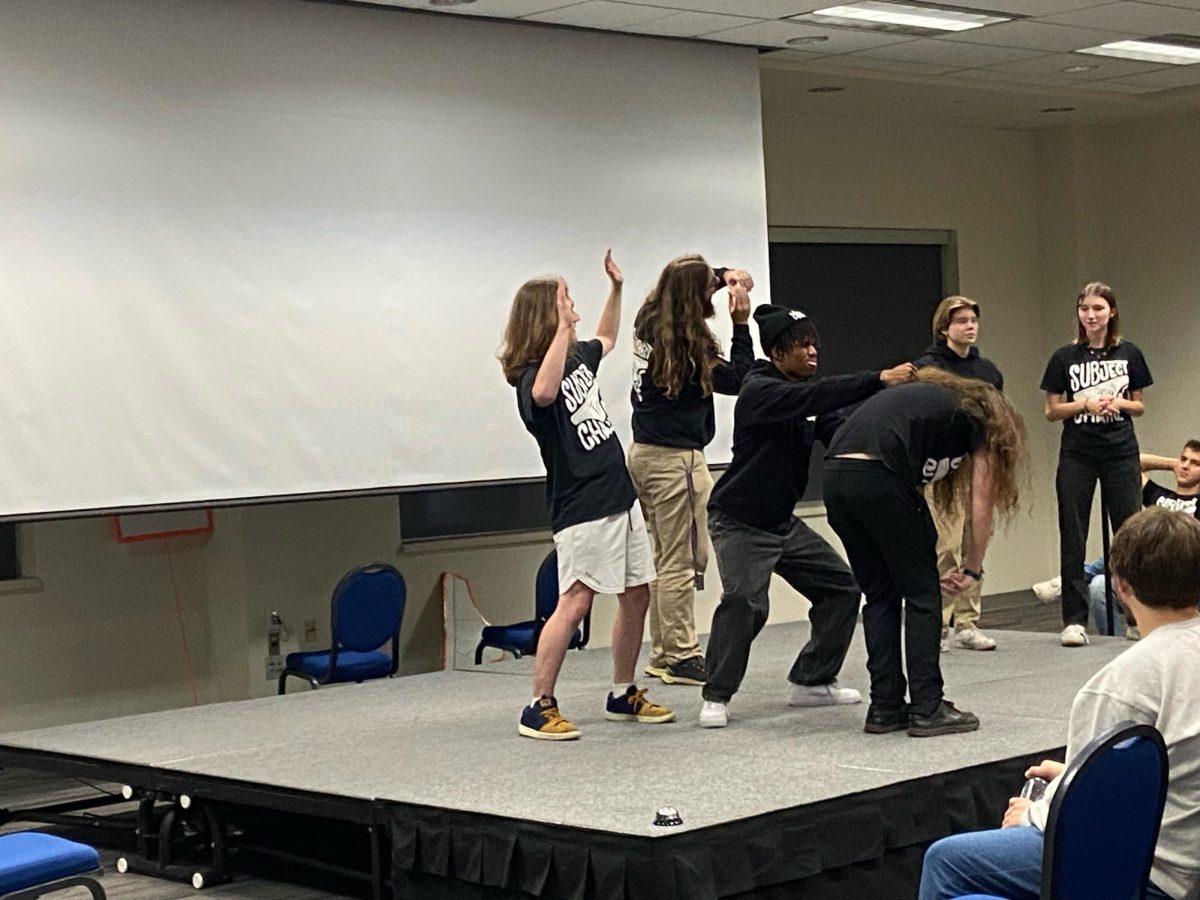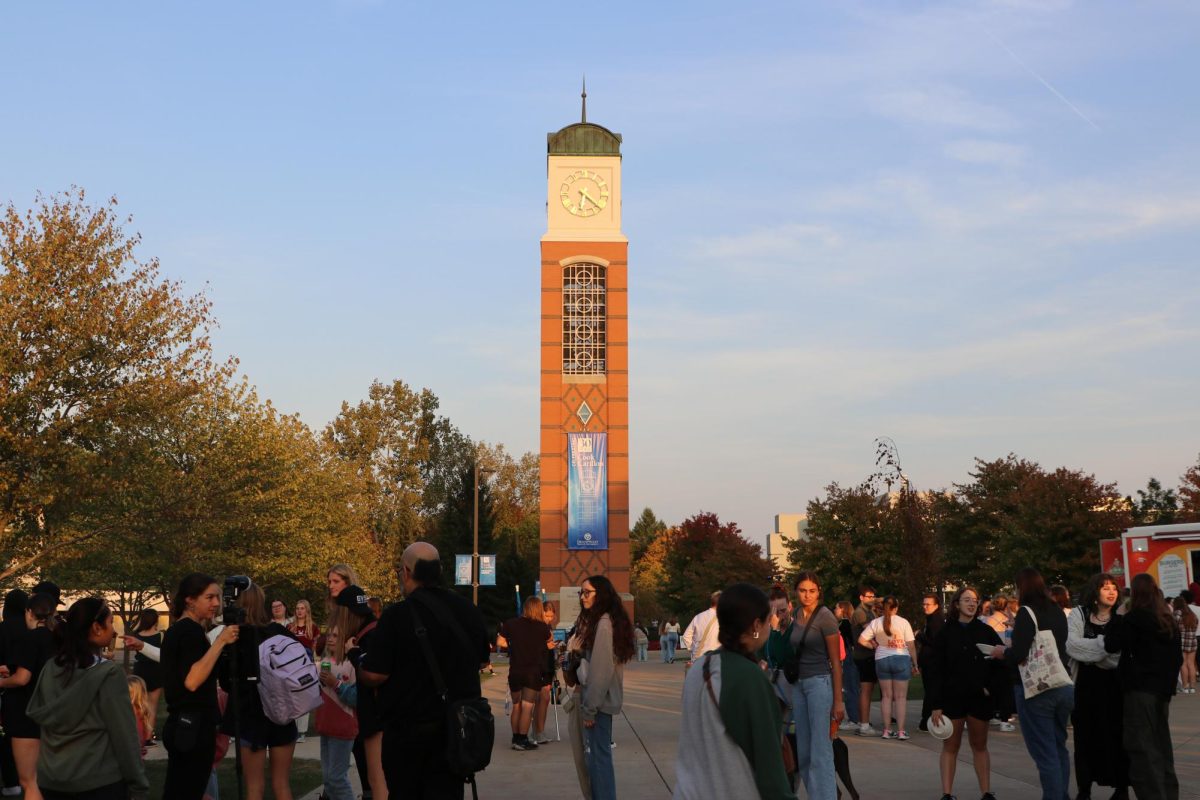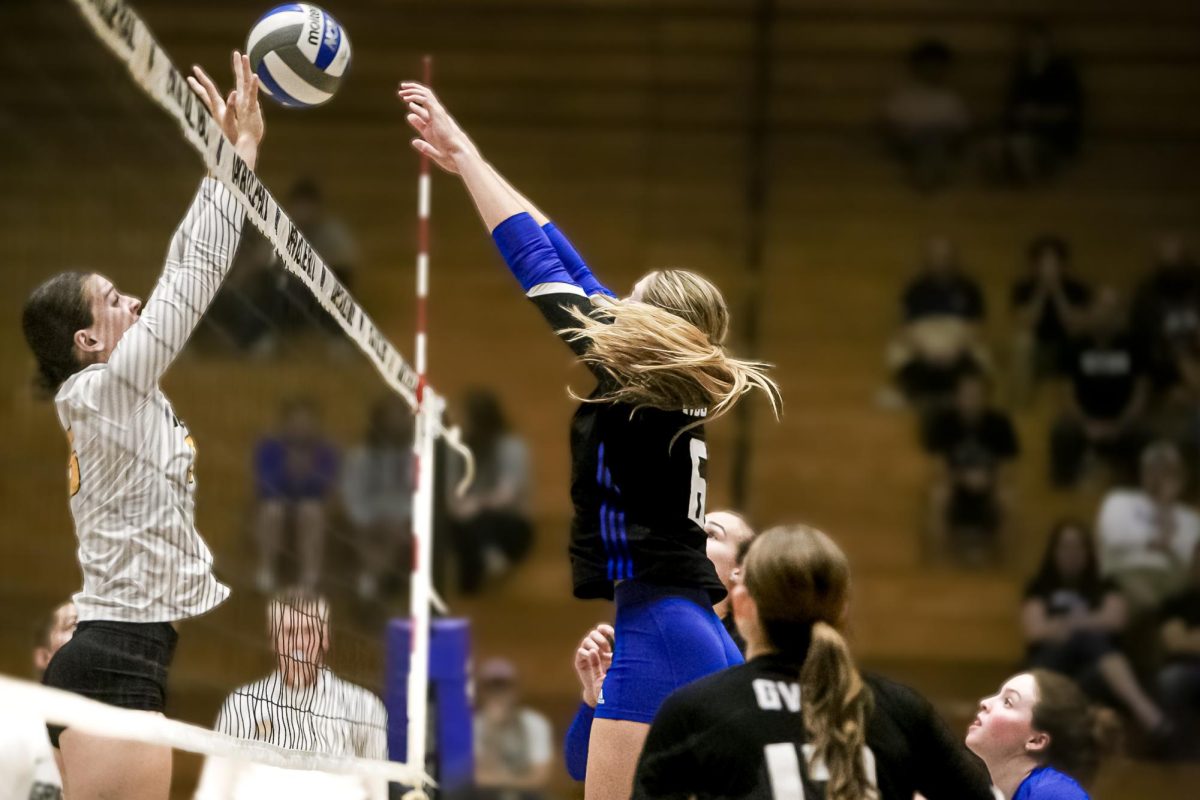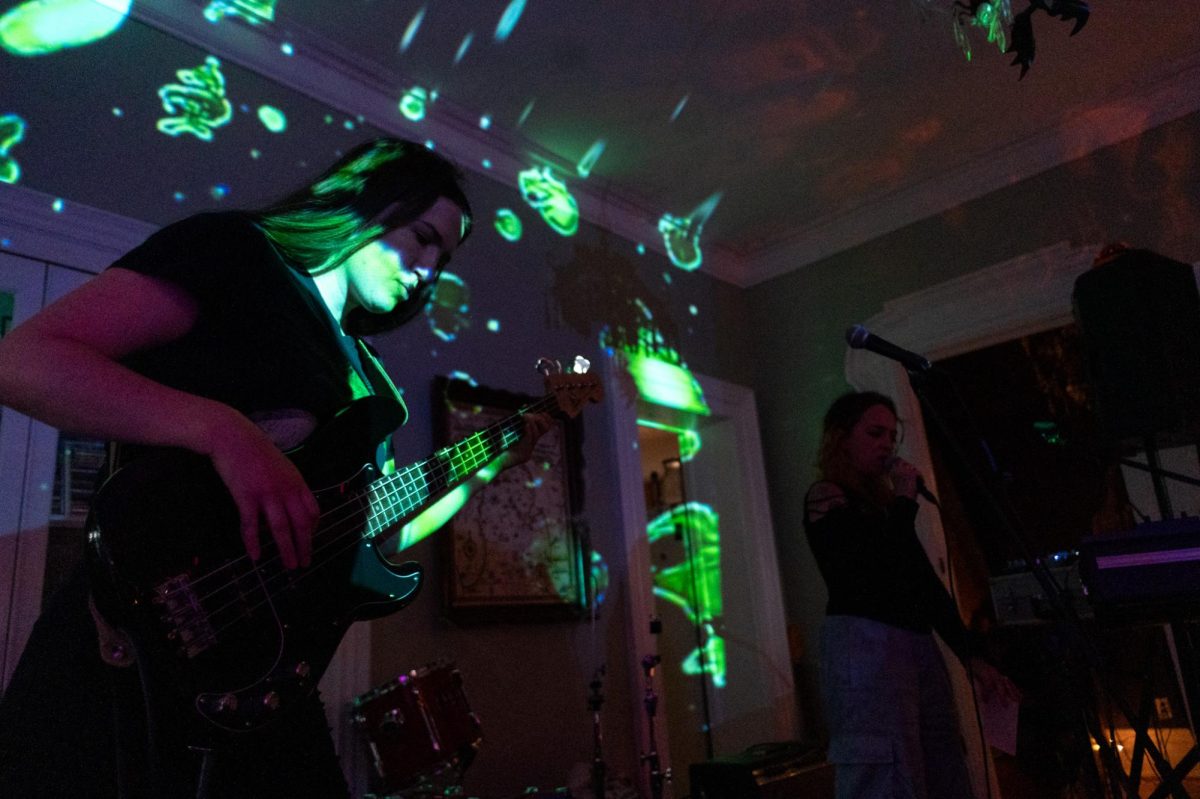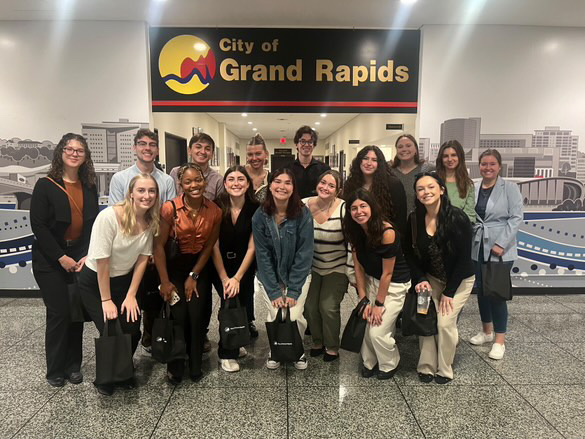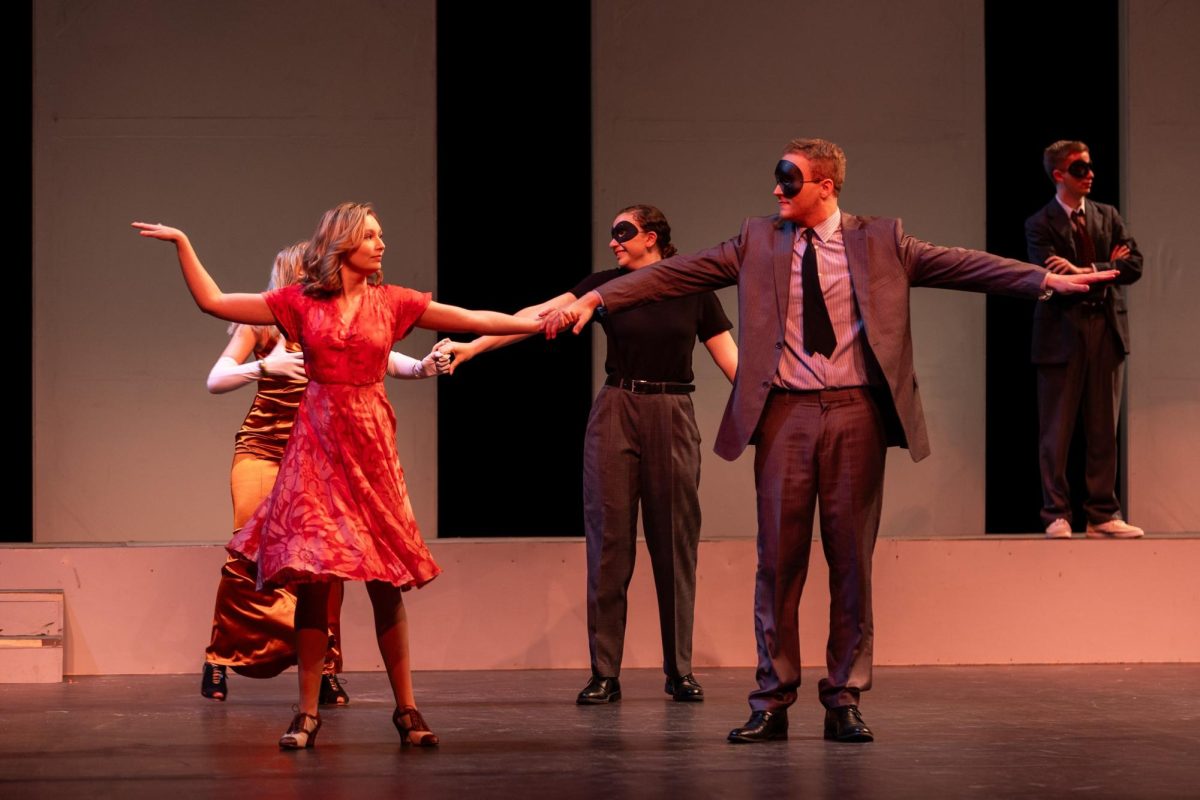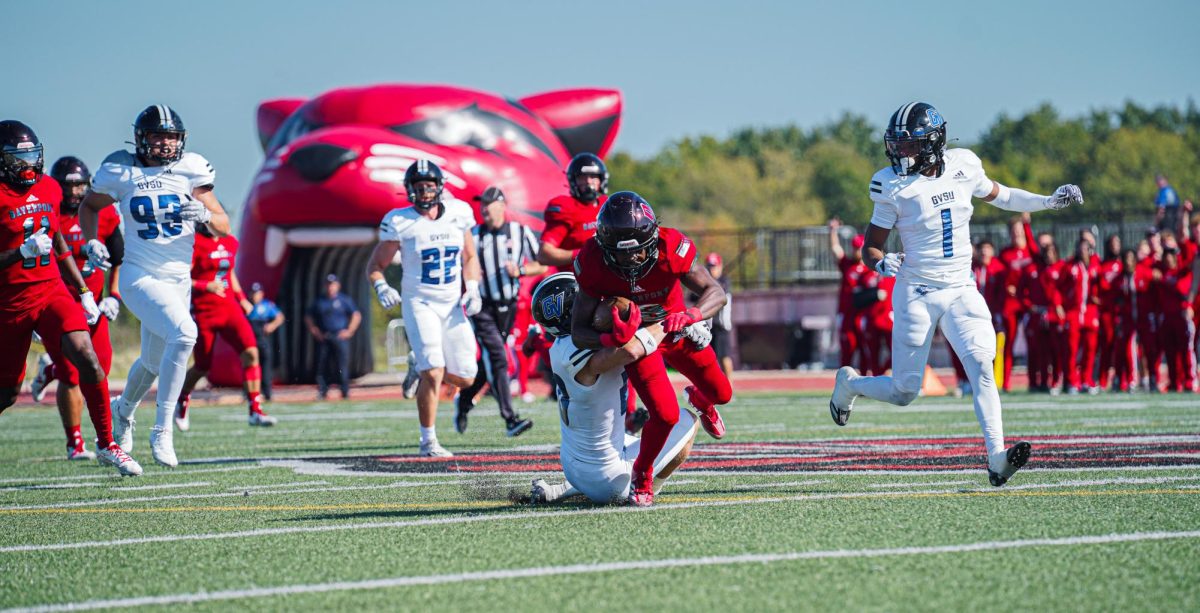GVSU provost talks university challenges, goals for next 10 years at town hall meeting
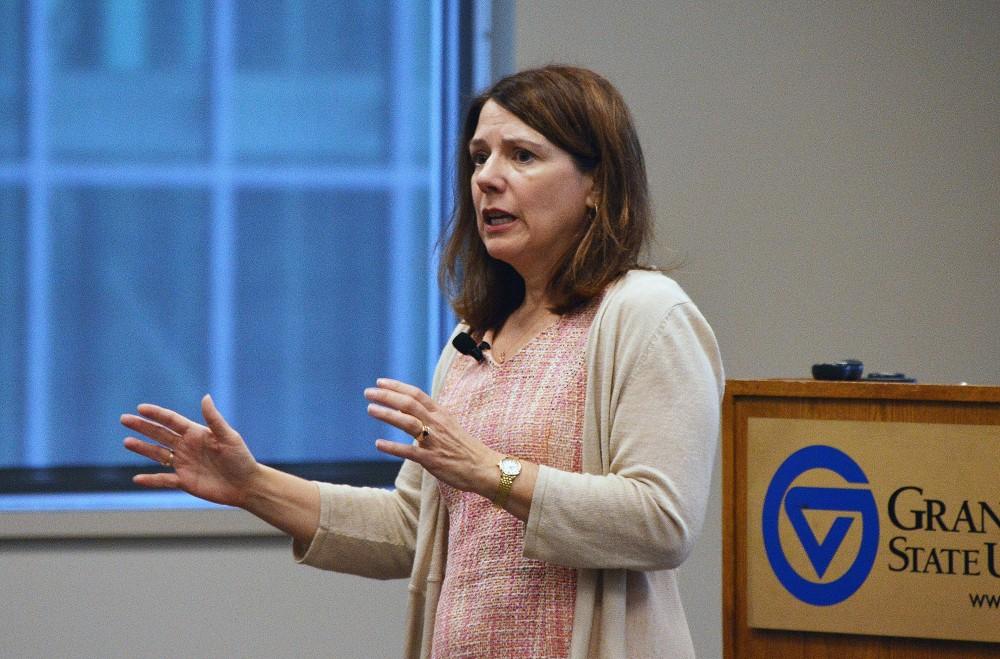
GVL/ Hannah Zajac. Maria Cimitle speaks at Town Hall meeting in Kirkoff on Monday September 18, 2017.
Sep 21, 2017
At her third town hall meeting in a series of four, Provost and Executive Vice President for Academic and Student Affairs Maria Cimitile predicted challenges that will affect Grand Valley State University in the next 10 years and proposed solutions for them.
During her presentation Monday, Sept. 18, in the Kirkhof Center, Cimitile identified changing demographics, declining enrollment and significantly decreased state funding as potential trials GVSU will face in the near future.
More specifically, Cimitile discussed the cost competition between GVSU and other public Michigan universities that offer students more funding based on their ACT scores. Given that GVSU’s primary source of funding is tuition, a decline in state funding in the next 10 years would, without intervention, only increase this cost burden on students, assuming they attend GVSU in the first place.
“Our sister institutions are buying students,” she said.
Cimitile also identified the rising costs of textbooks and living expenses as potential educational barriers for students.
“The cost to students is increasing, not just in tuition dollars, but in terms of room and board … as well as textbooks,” she said. “That’s a small amount of dollars that students can’t pay, so they drop out.”
Michelle Rhodes, associate vice president for financial aid, chimed in to discuss the funding available to help students in need buy textbooks.
“If I know a student needs a textbook, we’re going to find them a way to get money to buy a textbook,” she said. “We do have resources to help the students. That is what we do.”
Students’ mental health was another focal point of Cimitile’s presentation, as well as the Q&A immediately afterward.
“We know that student anxiety is increasing because of some of the factors that I mentioned,” Cimitile said. “The mental health issues that students are feeling are reported at a higher rate than their academic concerns.

Now, we know that those two things go hand in hand often—not always, but often—so how are we addressing that? That’s something that we’re going to need to think about more carefully.”
During the Q&A portion of the town hall meeting, Marlene Kowalski-Braun, associate vice provost for student affairs and inclusion, shared how GVSU community members can submit a non-emergency form to express concern about a student. The CARE Form is accessible on the website for the Dean of Students Office.
“When a student shows up on one person’s radar, they show up on many, and so our goal always is to intervene at the appropriate level to help get them the care that they need,” Kowalski-Braun said.
During her presentation, Cimitile also identified what she perceived to be GVSU’s strengths, including talented faculty and staff, “excellent teaching and fortified scholarship” and student prioritization.
“At Grand Valley, students are our first priority,” Cimitile said. “That is a huge asset for us. We always have—as long as I’ve been here—put students first, and so as long as we have the collective mindset, I think we are going to excel.”
In the next 10 years, Cimitile hopes the university will be renowned for its high-quality, accessible education; innovation; and engagement of students, faculty and staff. She thinks these goals can be achieved through GVSU “telling (its) story,” making informed decisions and creating pathways for students.
“I think we do fabulous things at Grand Valley already; I think we could do a much better job of talking at what we’re doing,” she said. “I would like to be a beacon of public impact.”



